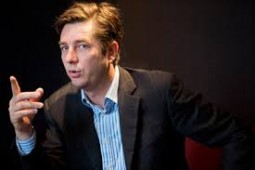
The Hurun 2015 Philanthropist List does not only look at who is giving, but also has a good look at what they are giving too. Founder Rupert Hoogewerf gives for Barrons an overview. China would be better off if they would invest more in socially responsible businesses, he says.
Barrons:
At least half of the top 100 philanthropists gave their riches to education, in fact, and often to their alma mater. “If you are a graduate of this university and you can go back and name a building, that’s an incredibly powerful sign of your success,” says Rupert Hoogewerf, Hurun’s chairman.
Philanthropists also gave a lot to their home towns and provinces. About 20% or 30% of the top 100 give to build hospitals, roads and schools, and to alleviate poverty in the regions where they grew up. “There’s a powerful sense of the clan, I come from here, I want to donate back to here,” Hoogewerf says.
Hurun started the list 12 years ago to show China’s rich do give back and to keep tabs on the emergence of the billionaire likely to emerge as China’s Andrew Carnegie, the wealthy American industrialist and philanthropist who gave away nearly his entire fortune. “We’ve been searching ever since,” Hoogewerf quips…
China’s rich remain relatively stingy compared to global standards. But Hoogewerf says you can argue they are actually more generous than you might expect considering China’s tax system doesn’t provide incentives to give money away, in either the form of tax breaks or estate taxes, and because China’s entrepreneurs are relatively young and still building their wealth.
The average age of philanthropists on the list is about 55. That spans Pang Shengdong of social network 51.com, at age 38, to Tao Xinbo, developer of the five-star Jinling Hotel in Nanjing, at age 99.
Hoogewerf argues the country may actually be better off if China’s rich put their philanthropic efforts into creating more socially responsible businesses. It would be better, for instance, for a real estate developer to build green buildings than to donate US$2 million at the end of the year to some cause.
“What’s important is making a product that’s a better product,” Hoogewerf says. “That’s where the energy needs to be focused.”
Rupert Hoogewerf is a speaker at the China Speakers Bureau. Do you need him at your meeting or conference? Do get in touch or fill in our speakers´ request form.
Are you interested in more experts in cultural change at the China Speakers Bureau. Check out our list here.





